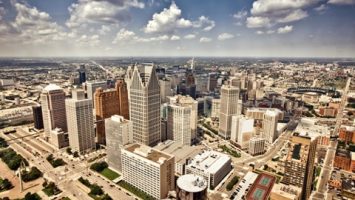
A new state law – introduced by state Representative Sonya Harper, D-Chicago – requires Illinois’ Department of Public Health to provide an annual report that identifies food deserts within the state and assess their impacts on the health of residents.
“Many people throughout my district and across Illinois do not have good access to healthy and nutritious foods, which means they are forced to buy unhealthy foods at local gas stations and convenience stores,” Harper said. “Municipalities will now have the information needed in order to make sure they are providing residents with quality food options.”
Earlier this year Harper introduced a bill that would allow counties or municipalities to create urban agriculture zones made up of organizations or individuals who grow produce or other agricultural products, raise or process livestock or poultry, or sell a minimum of 75 percent locally grown food. The bill is designed to spur local economies and food systems by increasing access to healthy, affordable foods and re-purposing vacant land. It also calls for a reduction in water connection charges for properties in an urban agriculture zone.
Chicago’s new “Growing for Chicago” initiative will receive a $1 million federal grant to boost and coordinate urban farming in the city – one of 45 projects to be awarded a total of $26.6 million this year through the U.S. Department of Agriculture’s annual Conservation Innovation Grants. The city project aims to prepare land and recruit farmers for urban farming near the planned Englewood rail trail, among other objectives.
“We need to encourage more farmers markets, grocery stores, bakeries and other reputable food retailers and producers to open up shop in and sell their affordable products to people living in food deserts,” Harper said. “I will continue to fight to make sure we provide healthy and affordable food options for all residents as well as continue to collaborate with others to eliminate food deserts across Illinois.”


